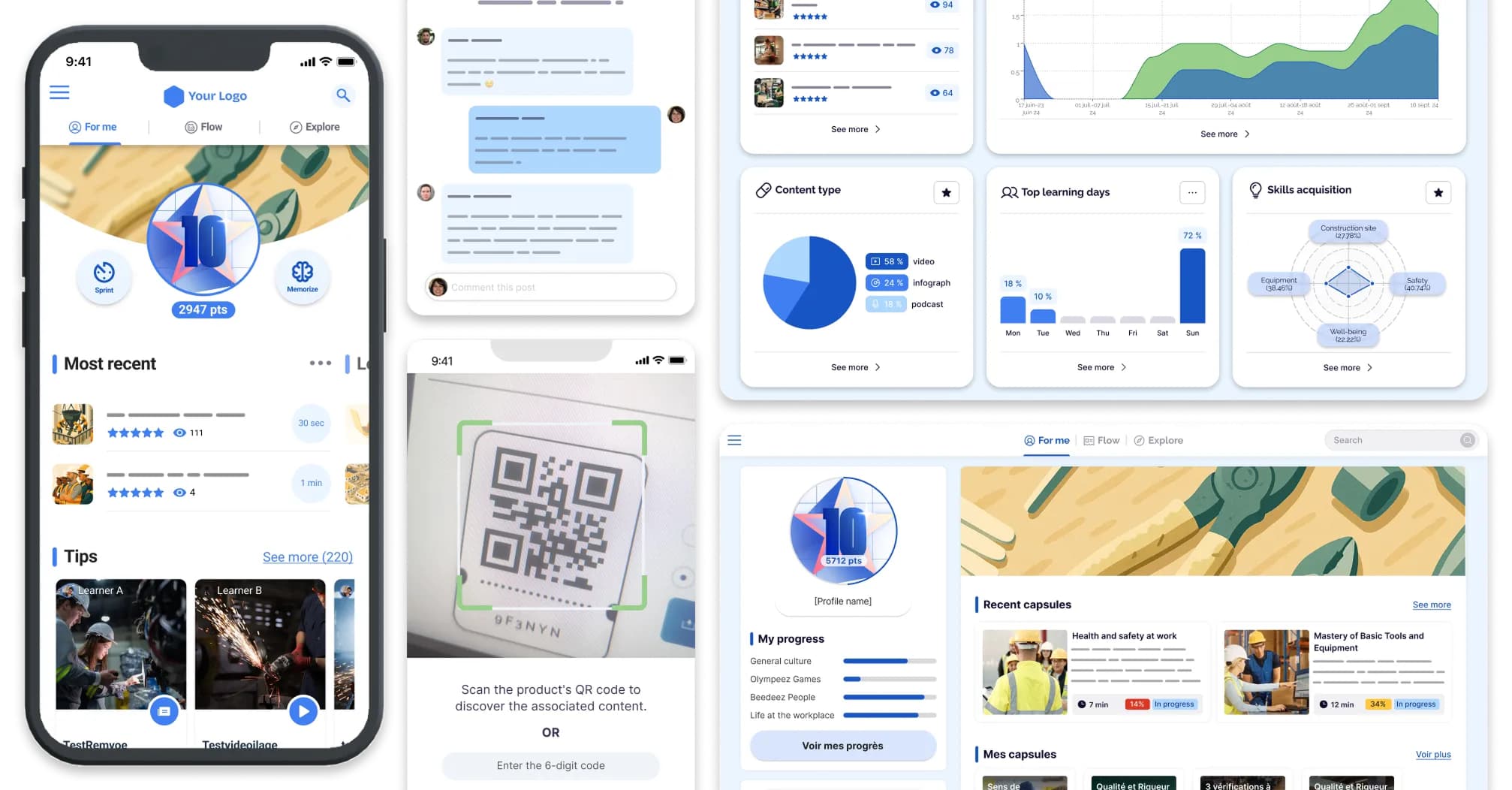To engage your sales teams in continuous training, it is essential to value the concrete benefits of training, to offer adapted content and to promote a learning culture within the company.
Les sales teams are the engine of success of any business. But in a constantly changing market, yesterday's practices can quickly lose their effectiveness.
For remain competitive and relevant, salespeople need to constantly improve their skills and update their knowledge. This need goes beyond a simple professional asset: it is now an indispensable strategic lever.
How, then, to make continuous training a real habit integrated into the daily life of your sales teams and maximizing their engagement ? Discover concrete strategies to motivate and support them in this essential process.
The evolution of business practices: a challenge for your teams
Customer expectations are constantly evolving, influenced by technological advances and new business approaches. Tools like AI-based CRMs, omnichannel strategies, or ultra-targeted personalization techniques are redefining the business landscape.
😣 In this context, the (good) practices that were tried and tested a few years ago may now seem obsolete.
- For your sales teams, a lack of skill updates can lead to a loss of efficiency, a lack of relevance to customers, and a decrease in motivation.
This situation has a direct impact on the overall performance of the company, in particular in the face of competitors who better control market innovations.
- That's why investing in training is a strategic lever to ensure that your salespeople remain efficient, confident and able to anticipate market expectations.
👏 “A well-trained sales team does not just react to changes in the market and customer needs, it takes the initiative and positions itself as a key player in its sector;” Anne-Sophie, Content Marketing Manager at Beedeez.
Why invest in the continuing education of sales teams?
According to a Gartner study, companies that invest in the continuing training of their salespeople are seeing an increase in 22% of their productivity and efficiency.
This figure illustrates the direct impact of an increase in skills on the overall performance of a well-trained salesperson:
1. Improving skills and adapting to the market
In a business environment that is constantly changing, outdated knowledge is holding back results. Continuing training allows teams to master new sales techniques, to adapt to customer expectations and to integrate digital tools, which are essential today to remain competitive.
2. Increase in commercial performance
Well-trained teams work effectively at each stage of the sales cycle: prospecting, negotiating and closing. Greater control over sales processes improves results while opening up new opportunities for growth.
3.Strengthening motivation and commitment
An employer that offers training shows its commitment to the professional development of employees. A salesperson who feels supported and valued by his company adopts a proactive attitude and invests more in his missions.
4. Increased customer satisfaction
Better equipped salespeople accurately understand the needs of their customers, offering adapted and relevant solutions. A qualitative approach builds loyalty and encourages positive recommendations, improving both sales and the company's reputation.
💡 Did you know that? L'Oréal, a leader in the beauty industry, invests heavily in the training of its teams, by offering programs focused on the development of technical and relational skills. Thanks to these initiatives, the company saw a 15% increase in sales in some divisions, after training its teams on new market trends and advanced sales techniques.
Creating a culture of continuous learning
Creating a culture where learning becomes a habit makes sales teams more effective. A LinkedIn Learning study reveals that 94% of employees stay longer with a company that invests in their development.
Here's how to promote this dynamic:
1. Valuing the concrete benefits of training
Show how training directly impacts results. Share statistics and concrete examples that speak to your sales teams. For example, according to Salesforce, “78% of salespeople who take regular training courses meet or exceed their sales goals.”
💡 Also highlight personal benefits, such as the acquisition of transferable skills and career growth within the company, using examples from your workforce if possible.
2. Encourage peer-to-peer knowledge sharing
Businesses that promote collaborative learning sees a 25% increase productivity within their teams. (McKinsey). Organize workshops where the most experienced salespeople share their best practices or analyze situations in which they find themselves in difficulty.
→ These exchanges not only strengthen The skills of the team, but also promote a collaborative dynamic. Take advantage of your LMS to make it a collaborative platform on which Everyone can contribute to the building by asking questions, offering resources, or by sharing feedback from the field.
💡 Did you know? Vodafone has implemented a continuing education program that aims to keep its salespeople at the forefront of communication technology. This initiative resulted in an increase of 10% of productivity and a reduction in turnover of 15%.
3. Personalize training paths
The personalization of training courses ensures each salesperson a tailor-made learning experience, adapted to their specific needs, which maximizes their effectiveness.
4. Identify the individual needs of each salesperson
To ensure the relevance of training, it is essential to assess the skills and shortcomings of each member of the team. Use tools such as performance evaluations, regular feedback and individual interviews to identify areas that require particular attention.
→ This approach makes it possible to target precisely the training required for each salesperson, taking into account their goals and the challenges they encounter.
5. Offer content adapted to different levels of experience
The needs of an experienced salesperson differ greatly from those of a beginner. Offer modular training that adapt to various levels of experience.
→ For example, for new hires, Onboarding should include introductory modules on the basics of selling and negotiating. On the other hand, the most seasoned salespeople could benefit from training on advanced closing techniques or on the use of new sales technologies.
6. Allow salespeople to choose certain modules
Grant a certain freedom of choice modules can significantly strengthen the commitment of salespeople. By allowing them to select courses that interest them or that meet their immediate needs, you stimulate their motivation and involvement.
💡 This approach can also encourage them to explore topics they might not have considered, paving the way for new development opportunities.
→ Adopting this personalized approach not only stimulates the motivation of sales teams, but also promotes targeted and effective learning, with concrete results on their performance.




